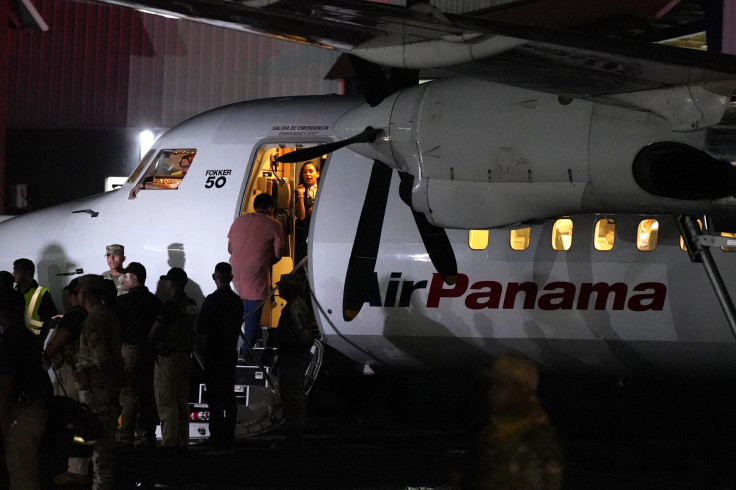
Panama received the first U.S. flight carrying deportees from third countries last week as the Trump administration doubled down on its promise to quickly expel migrants from the country. Now, with their next step uncertain, deportees have found themselves trapped in a Panama hotel, not allowed to leave and left praying for "a miracle," according to a new investigation.
The Trump administration announced last week it had deported migrants from several Asian nations to Panama on a military plane that took off from California. The announcement came on the heels of Secretary of State Marco Rubio's visit to Panama, also under pressure from Trump what he sees as Chinese influence on the running of the Panama Canal.
The decision to deport migrants to Panama was an answer to a major question that had been looming over the administration: what to do with migrants from countries like Afghanistan, Iran and China, which will not take back their migrants?
Panamanian President Jose Raul Mulino said the flight that arrived last Wednesday was the first of three planned flights that were expected to total about 360 people. "It's not something massive," he said.
A few days after having arrived in Panama, some of the conditions the migrants are facing recently came to light through a New York Times report.
According to the investigation, migrants who arrived on the deportation flights were stripped of their passports and most of their telephones, and then locked in a hotel, barred from seeing lawyers and told they would soon be sent to a makeshift camp near the Panamanian jungle. At the hotel, the Decapolis Hotel Panama in Panama City, several migrants told The Times that at least one person tried to commit suicide, while another broke his leg trying to escape.
"Only a miracle can save us," Artemis Ghasemzadeh, a migrant from Iran, told The Times through a hidden cellphone. Panama barred journalists from visiting the migrants, but The Times was able to contact some people inside the hotel, all of whom said they were asylum seekers being held against their will.
According to Panama, two United Nations organizations, the International Organization for Migration and the U.N. refugee agency, are charged with overseeing the migrants while they are in Panama. "We are simply here to assist," Carlos Ruiz-Hernandez, Panama's deputy foreign minister, said.
A spokesman for the International Organization for Migration said the group was "facilitating returns were safe to do so" and was not involved "in the detention or restriction of movement of individuals."
Furthermore, according to a senior U.N. official who requested anonymity to discuss a sensitive matter, the U.N. was providing Panama with humanitarian and technical support, but the Panamanians were tightly managing the deportees and the process they were following was not entirely clear, the Times investigation says.
Because migrants are now no longer on U.S. soil, it is Panamanian officials who will decide what happens to them. In fact, Washington is not legally obligated to make sure they are treated humanely or have the chance to seek asylum.
Lawyers in Panama say it is illegal to detain people without a court order for more than 24 hours. Yet roughly 350 migrants deported by the U.S. have been locked in the soaring, glass-paneled hotel for nearly a week.
For now, it remains unclear what the fate of the migrants trapped at the hotel will be. Panama's president has said that the plan is to send people back to their home countries. But if the United States could not easily send deportees back to certain countries, it is also unclear how Panama will do so.
© 2025 Latin Times. All rights reserved. Do not reproduce without permission.




